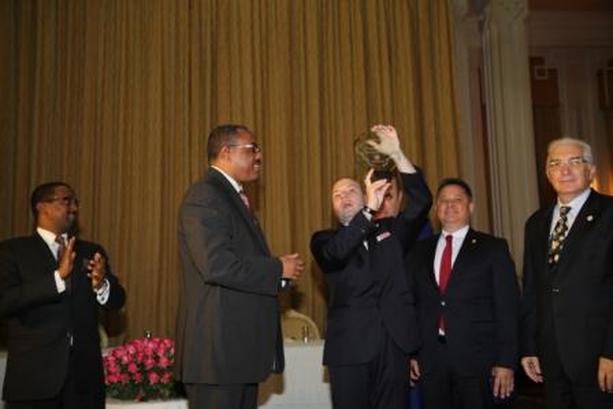
On 12 February 2016 the Ministry of Foreign Affairs of Ethiopia published the regular A WEEK IN THE HORN magazine outlining the New Tourism Strategy of the country.
As Ethiopia is the elected WORLD BEST TOURIST DESTINATION FOR 2015, European Journal of Tourism and Trade is presenting for the world readers the main outlines of this ambitious program:
Tourism in Ethiopia currently generates about US$2.9 billion annually, close to a million jobs and about 4.5% of GDP.
The Government, however, is determined to significantly increase the number of tourists during the 2nd Growth and Transformation Plan (2015–2020). The Ministry of Culture and Tourism plans to triple foreign visitors to more than 2.5 million by 2020.
This would make Ethiopia one of the top five tourist destinations in Africa.
Last financial year, 770,000 tourists visited Ethiopia and the Ministry of Culture and Tourism hopes to increase this to one million, and the revenue earned to well over US$3billion by the end of this Ethiopian budget year, by July 2016. To attain this the Ministry has identified five main focus areas for the GTP 2 agenda.
These are: natural and cultural heritage conservation and development; culture and tourism products marketing; service excellence; improve culture and tourism research and information systems; and enhance cooperation and collaboration with development partners.
Based on these focus areas, the Ministry now has clearly defined goals for the next five years.
Ethiopia‘s Minister of Culture and Tourism, Aisha Mohammed Mussa, recently explained some of the details behind the extra impetus the Government is adding to the development and promotion of the tourism sector in order to achieve and indeed surpass the ambitious growth targets it has set for 2020, the end of the Growth and Transformation Plan.
Indeed, she hopes that these aims can be exceeded if tourist sites can be developed quickly enough and promoted accordingly. She admits to being very ambitious in her vision.
The Government‘s interest in the sector has been underlined by the drawing up of a Sustainable Tourism Master Plan; by the revitalization of the Ethiopian Tourism Organization, to concentrate mainly on destination marketing and promotion, as well as destination development in terms of service, quality and access; and by setting up of the Ethiopian Tourism Transformation Council, chaired by the Prime Minister. Ms. Aisha pointed out the Ministry was now working on different websites to promote Ethiopia as a favorite tourist destination.
It was also working on changing the tourism brand and trying to build a completely new communications‘ campaign. This is going to be launched before March.
Minister Aisha is quite clear about the immense natural, cultural, and historical attractions of Ethiopia. It has eleven registered world heritage sites by UNESCO, with most recently the Konso Cultural Landscape, Meskel Demera Festivities and Fiche-Chambelala, the Sidama people‘s New Year celebrations, being added to the list.
Ethiopia is the origin of humanity, the birthplace of Lucy‘, the world‘s oldest known almost-complete hominid skeleton, more than three million years old. It is the land of the Queen of Sheba, home of the Ark of the Covenant, the origin of coffee and of the Blue Nile.
It is also the home of Erta Ale, a unique active lava lake, in the beautiful Danakil Depression, in part below sea level and the hottest place on Earth. It has beautiful scenery including the Simien Mountains, a spectacular chain of mountains that are sometimes called ―the roof of Africa.
There are four biosphere reserves registered by UNESCO.
There are numerous Rift Valley lakes, hot springs and highland lakes even around Addis Ababa. There are various national and regional parks, such as the Awash National Park and the Simien Mountains National Park, among nine other national parks and two beautiful sanctuaries.
It has spectacular sites dedicated to the some of the earliest buildings of three great religions, Judaism, Christianity, and Islam; with old cities, beautiful ancient mosques and churches, monuments. Axum, Lalibela and the Nejashi mosque are major sites that attract many tourists and, indeed academic researchers.
There are extensive national archives and a national library with rare and beautiful manuscripts. Ethiopia has its own unique calendar and alphabet. In addition, it has more than 80 nations and nationalities and peoples, all with their own distinct cultures and amazing traditions. On top of this, the Minister underlines, Ethiopia also has dependable peace and stability. Never colonized, it remains a symbol of independence for many in Africa and other continents. Addis Ababa, of course, is the seat of a number of international organizations including the African Union, the UN Economic Commission for Africa and more than 100 embassies. Conference tourism is another area of growth potential.
This entire heritage and the associated potential for tourism are at the centre of Ethiopia‘s plan to quadruple the number of foreign visitors by 2020.
The Minister emphasizes that the new strategy of tourism is a central part of the Government‘s integrated development plans. As the number of visitors increases, the demand for developed infrastructure also increases. Ethiopia has immense and untapped natural resources, a competitive labor force and stability.
These attributes make it a major investment destination in Africa, and this creates many opportunities for the tourism sector. Ethiopia‘s tourist destination sites used to be inaccessible due to inadequate road and air infrastructure, lack of power infrastructure and other facilities. In the past 10 years, the Government has carried out large-scale investments in the construction of airports, road, and railway and the energy sector; she added ―power infrastructure is our top priority so as to support this growing economy and we are doing well in this regard.
Overall, infrastructure development remains one of country‘s top priorities. Now, the Minister said, the Government is investing a lot into these areas. Tourists are accessing these destinations more easily and, equally, investors are keen to invest in building lodges, hotels and restaurants at the tourist sites or operate as tour operators.
Potential investors can take advantage of these opportunities through direct investment or joint ventures with local partners.
Tourism opportunities exist in the construction of star-rated hotels, lodges and resorts, international and specialized restaurants. The return of investment for government and the private sector is growing. The new strategy focuses on coordinating and communicating the many stakeholders at both the national and sub-national levels effectively in order to improve Ethiopia‘s image, market presence and penetration.
Along with this, another priority is education to provide the necessary human resources to work efficiently in the hospitality sector.
The Minister underlined the importance of providing market-oriented training for young people who want to work in hospitality, invest in the expansion of employment and proper professional training, to encourage entrepreneurship among young people, including women.
All this, she said, had to go along more generally with ensuring good governance and democracy in order to use this young workforce most effectively. Also important is minimizing the rate of corruption, ensuring the rule of law, accountability and integrity among stakeholders.
All these factors would contribute to the country‘s growing economy. One element behind this is, of course, the Government‘s strong commitment to end poverty.
Another is the development of clear and appropriate government policies and strategies for each and every sector that is leading us to the eradication of poverty.
The Government also works hard for mutual cooperation and win-win collaboration with partners in every sector.
The tourism sector has benefited greatly from the stable political arena over the past two decades giving Ethiopia some competitive advantage over other countries. It also works hard to maintain peace and security with neighbors. All in all, it provides a conducive environment for the tourism sector.
The Ministry is now planning to have a new brand and a new slogan to communicate Ethiopia‘s attractiveness and uniqueness more fully to the rest of the world.
It is developing new websites, software and mobile apps to promote Ethiopia. It is participating in different worldwide trade fairs in order to expand promotion and get better market access to tourism products. Equally, ―the current stress is on destination development and service excellence in order to sustain current and future customer relationships.
During the last Growth and Transformation Plan (2010-2014) the Ministry assessed nearly 400 hotels in collaboration with UNWTO, and in Addis Ababa alone 68 hotels were awarded with stars from 1 to 5. It is also encouraging the diversification of the tourism product offering to include nature-based tourist elements, such as mountain climbing, river tracking, bird watching, and similar areas.
The country has ample resources in all these areas.
Whether the Ministry achieves the longer-term aims, revenue and tourist numbers are already both up this year.
The country‘s image is continuing to improve as indeed the international media has noted.
Last year, Ethiopia was named World Best Tourism Destination‘ by the representatives of the 28 countries on the General Assembly of the European Council on Tourism and Trade (ECTT).
The judges noted that the Simien Mountains showed the potential for national parks and offered a model of achieving ecological tourism that should be recognized throughout the world. They described Ethiopia as perfect for safari and adventure tourism, providing safety and peace, making the country one of the world‘s top adventure destinations.
ECTT President, Professor Anton Caragea_, said ―the Government of Ethiopia is recognizing the importance of tourism as a key facilitator for the country‘s development, investing in infrastructure, creating a special team under the Prime Minister‘s leadership for destination promotion and management and protecting the cultural, natural and historical patrimony of the country.
He said the community-based approach, promoted by the Prime Minister was the perfect way of sharing revenue, increasing incomes and supporting marginal and rural community development. ―Ethiopia, he said, ― is a perfect, safe and outstanding place to visit, and all world tourism experts have expressed their confidence in the future of tourism in Ethiopia.
Dr Ray Muntida, Advisor to IGAD‘s Sustainable Tourism Master Plan for the region, believes that if Ethiopia fully implements its Sustainable Tourism Master Plan by 2020, it really can become one of the five leading tourist destinations in Africa. Minister of Culture and Tourism, Aisha Mohammed, agrees.

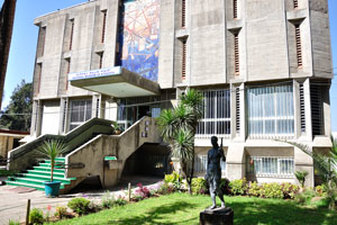
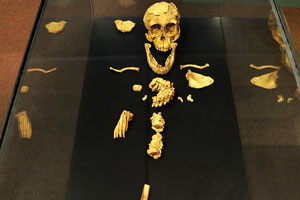
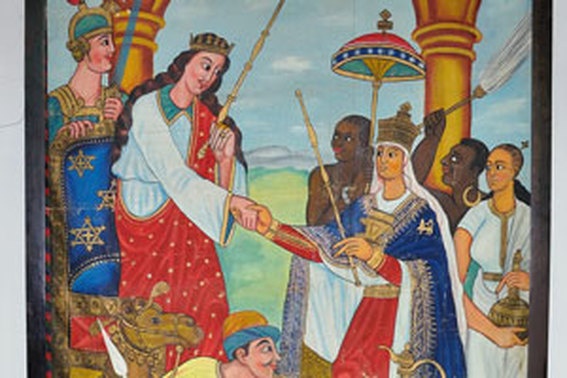
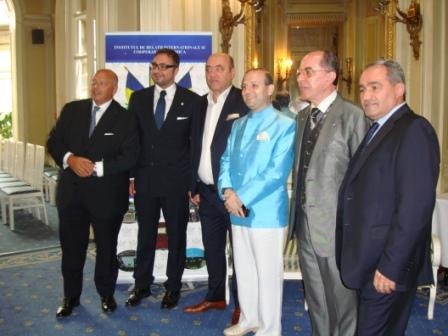
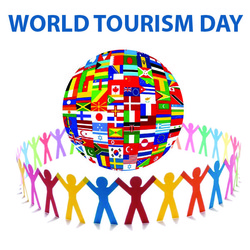
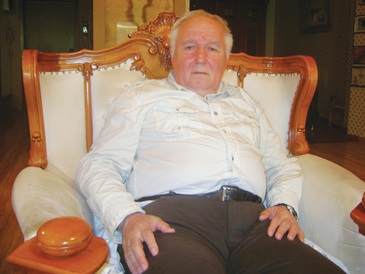
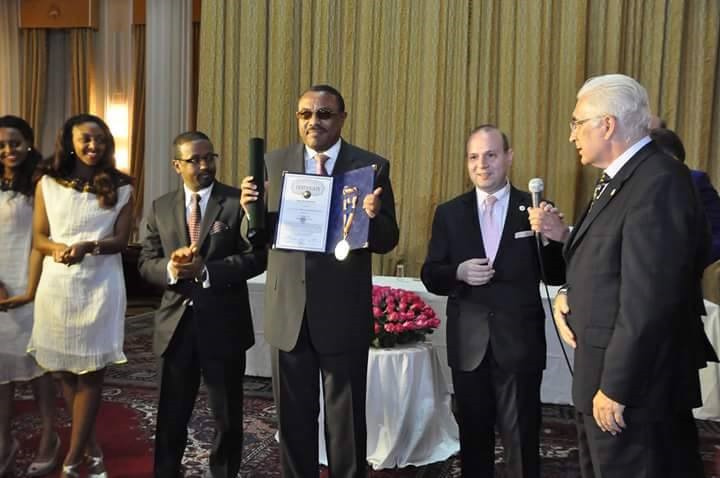
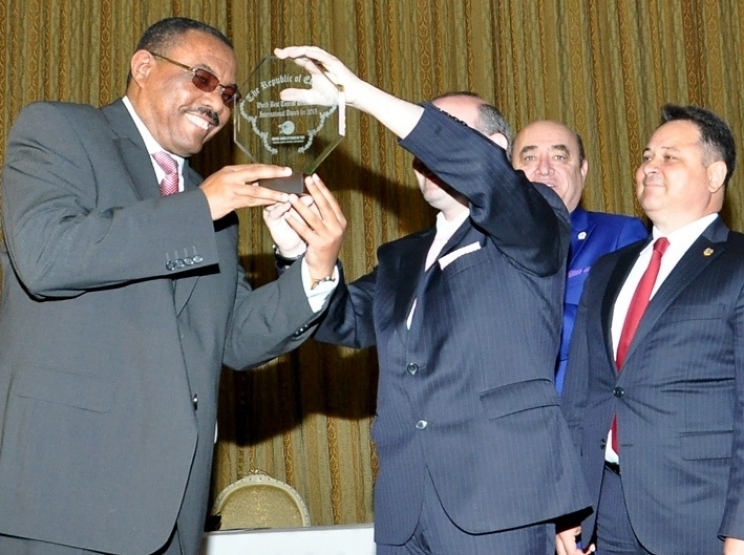
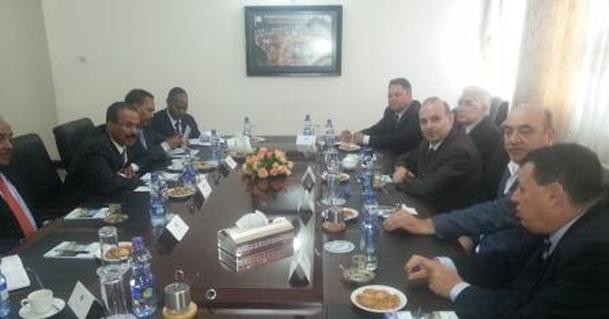
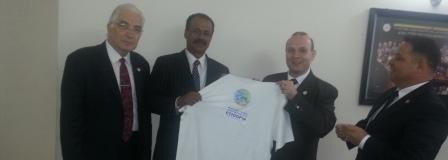
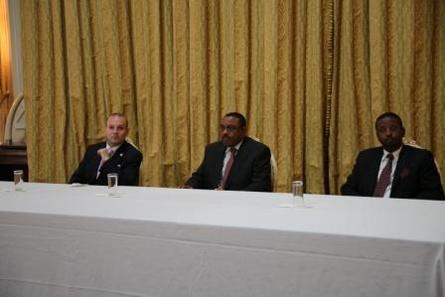
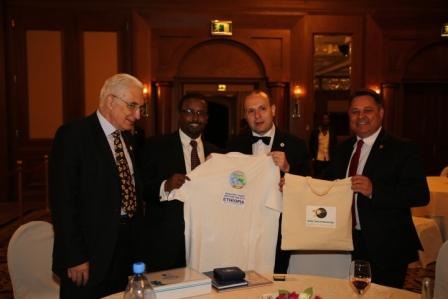
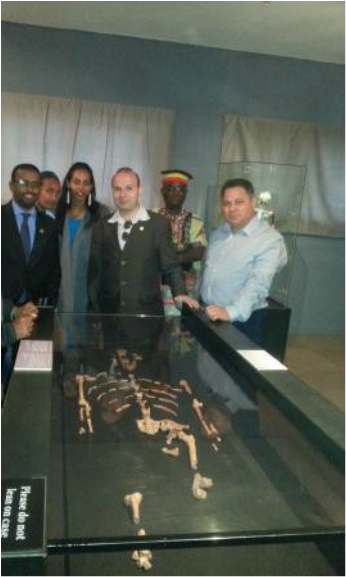
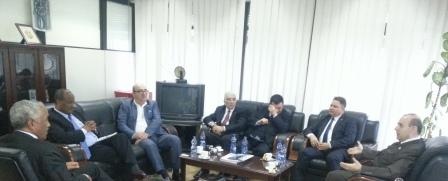


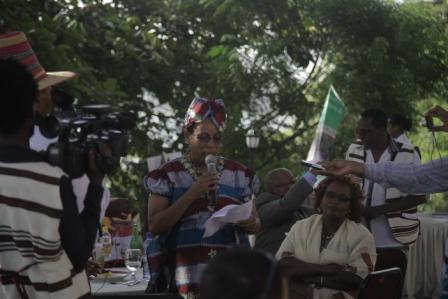
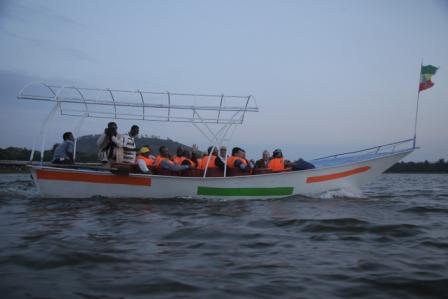
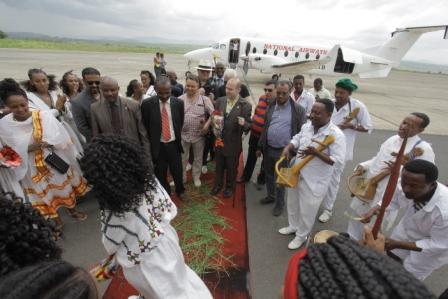
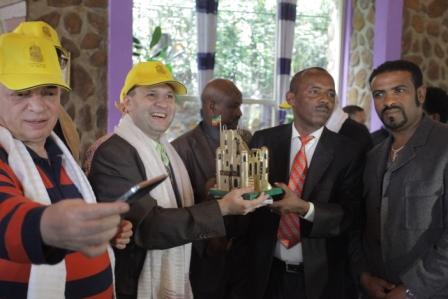
 RSS Feed
RSS Feed
